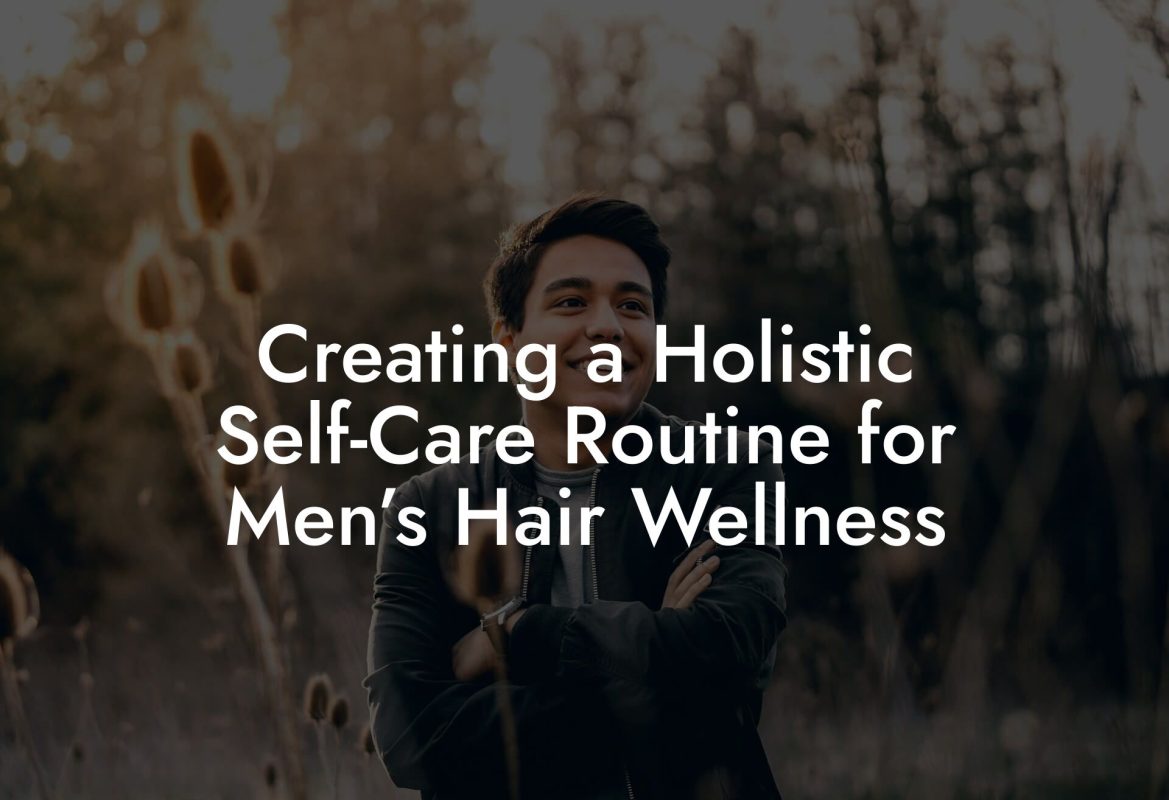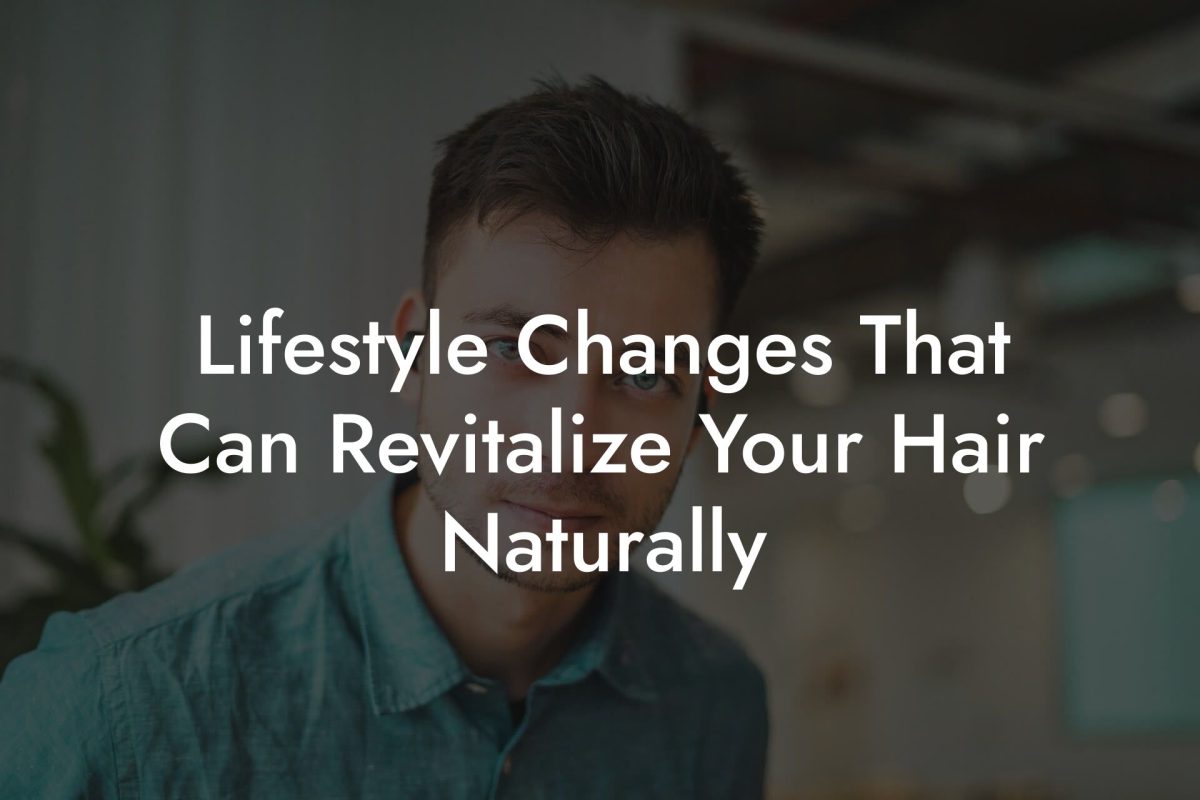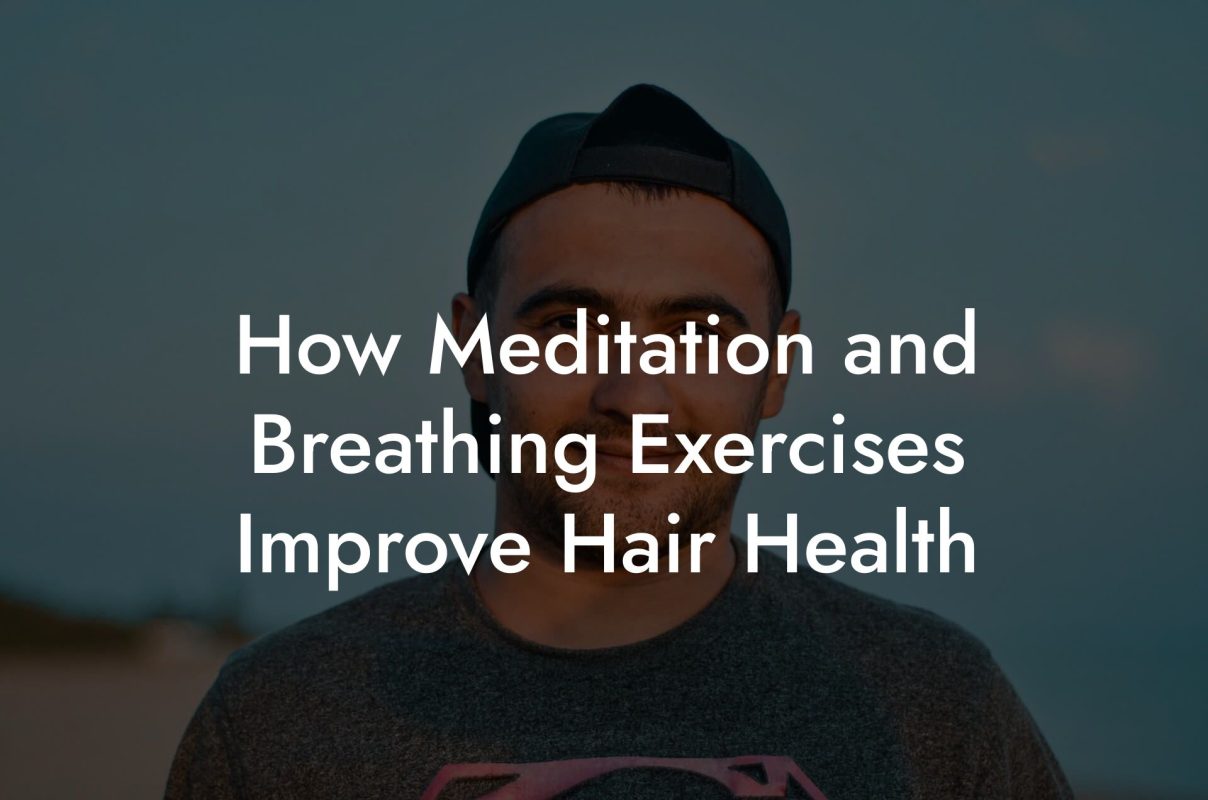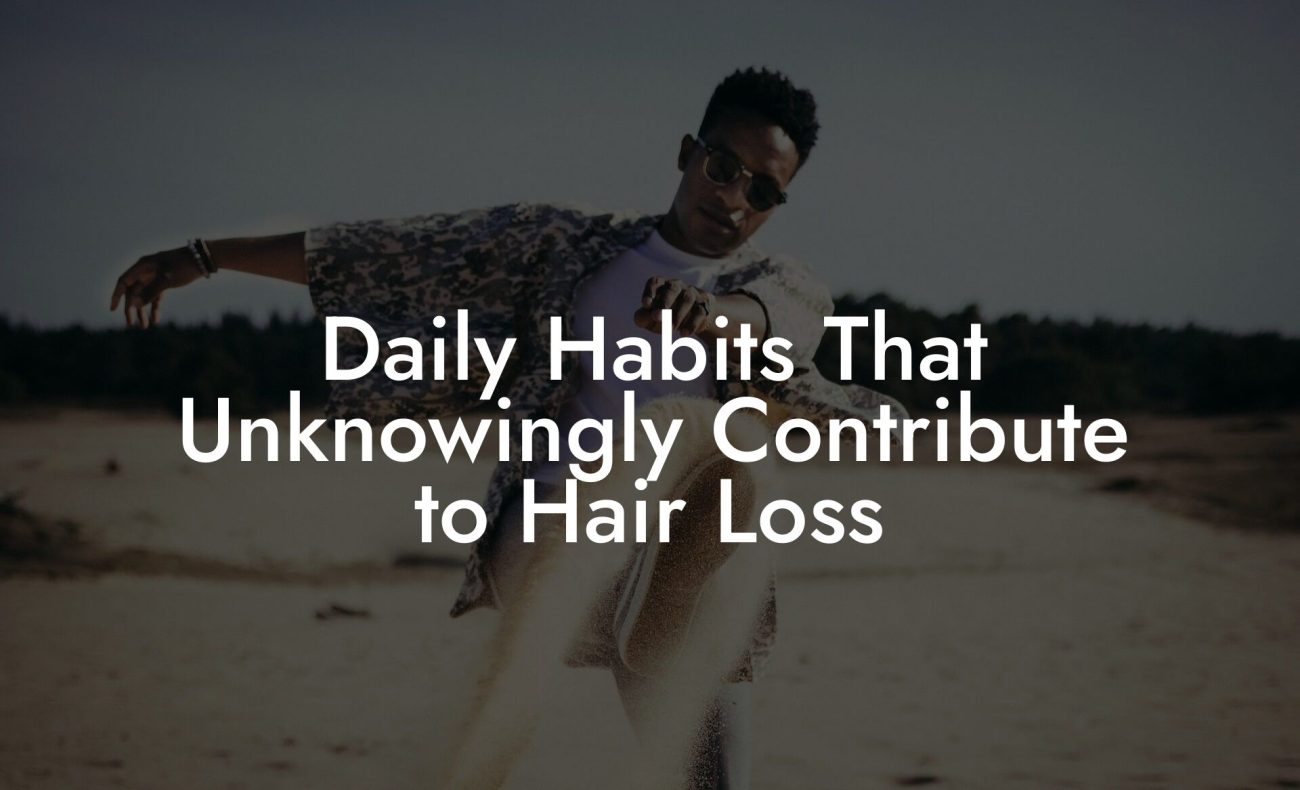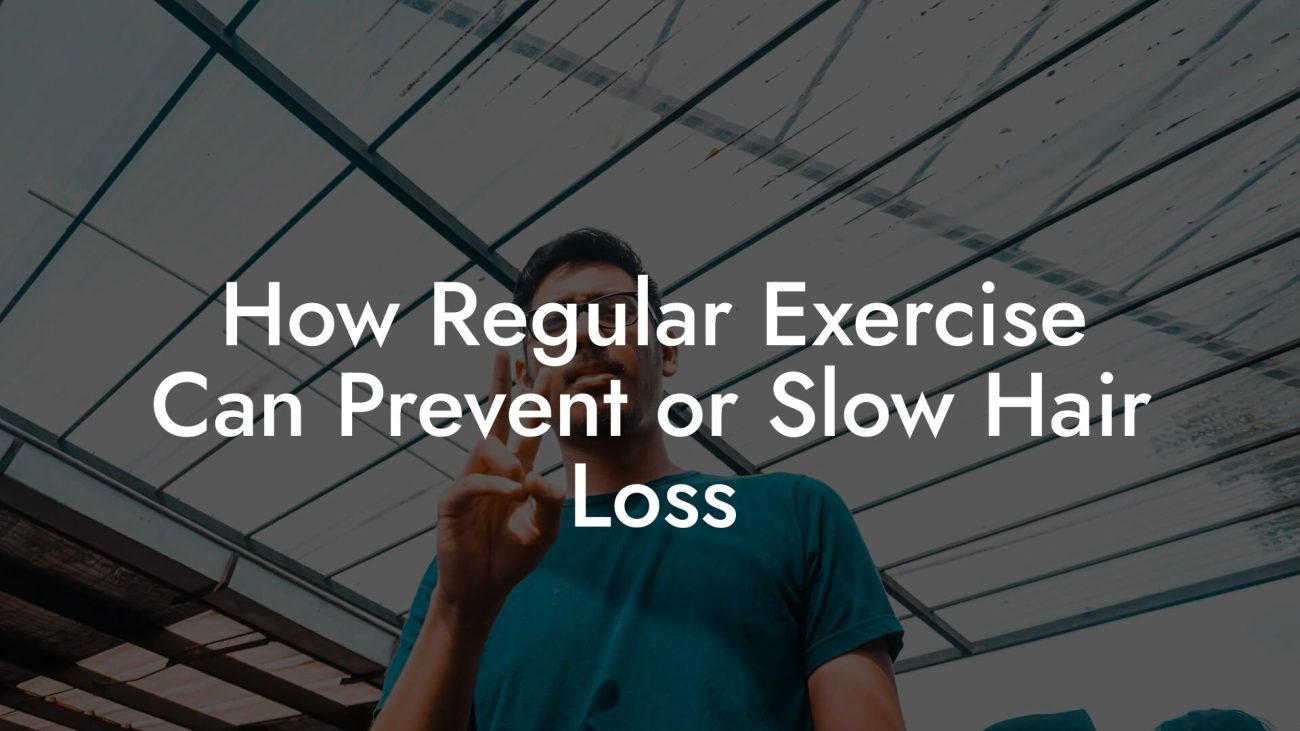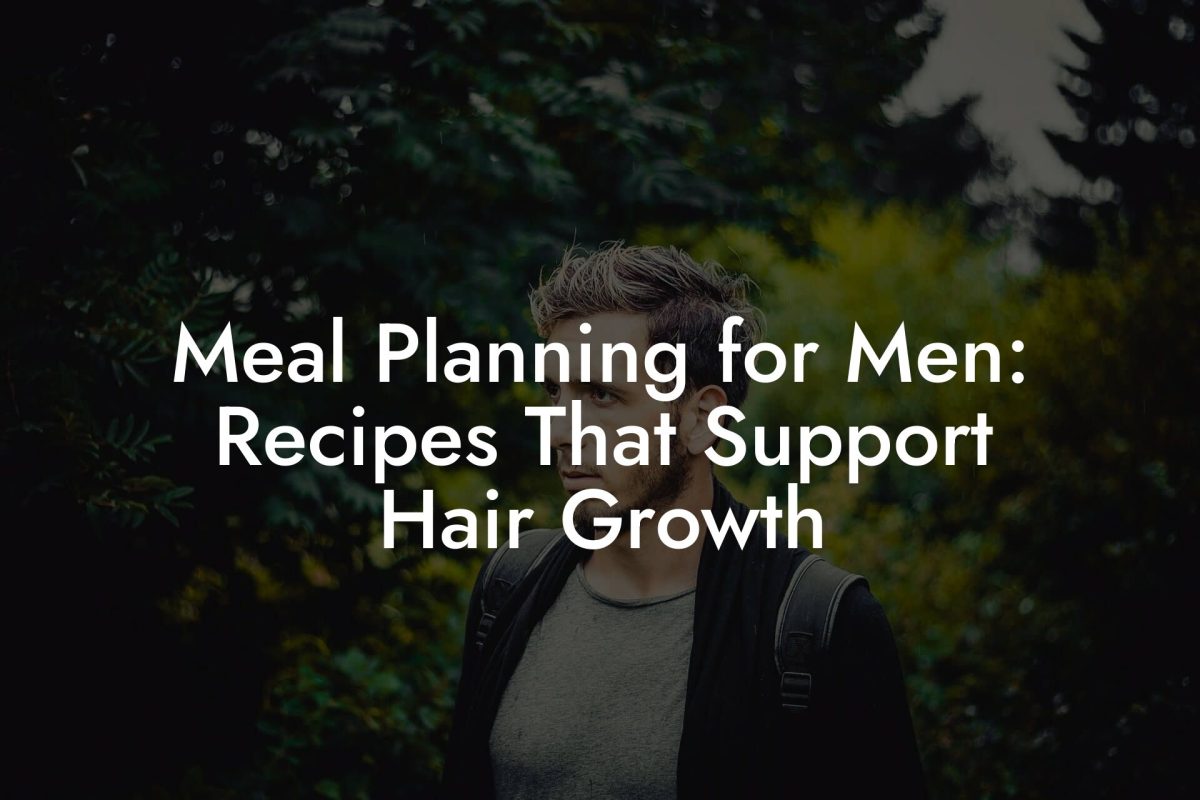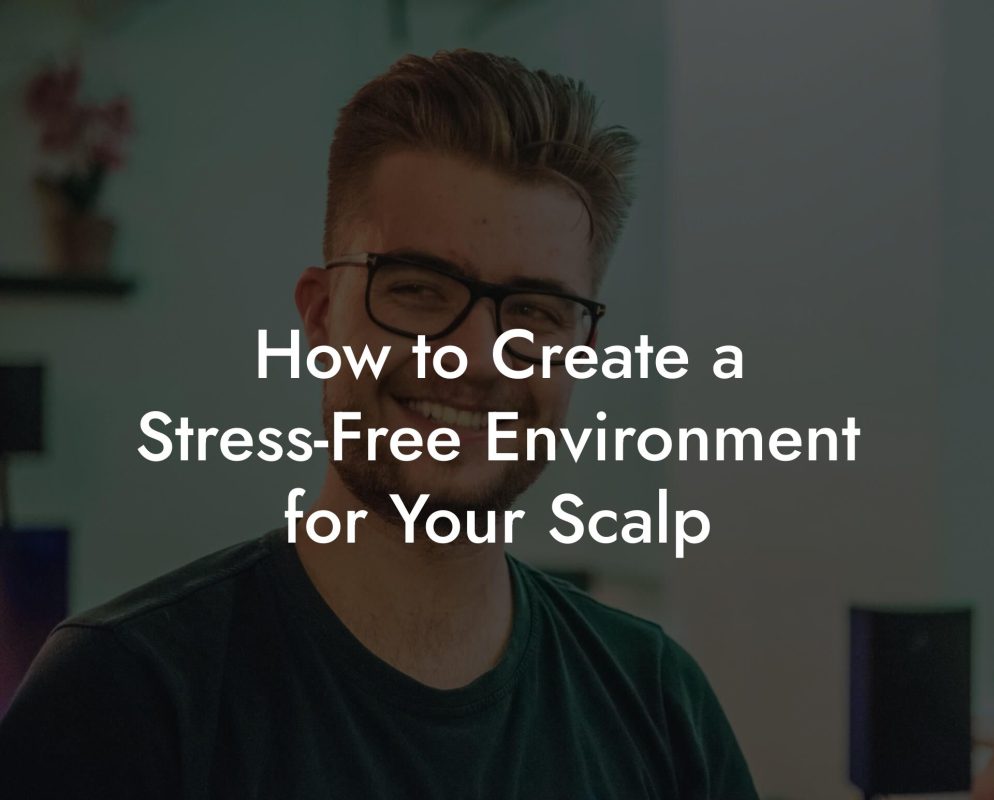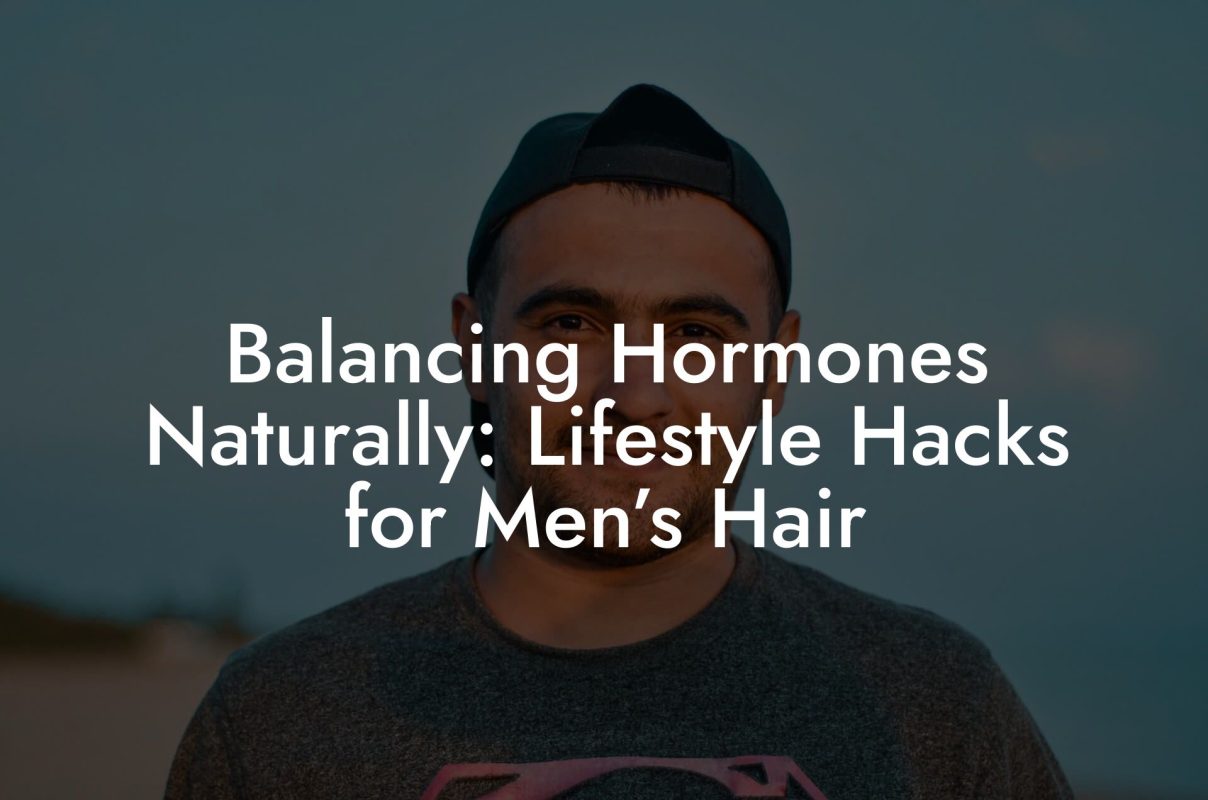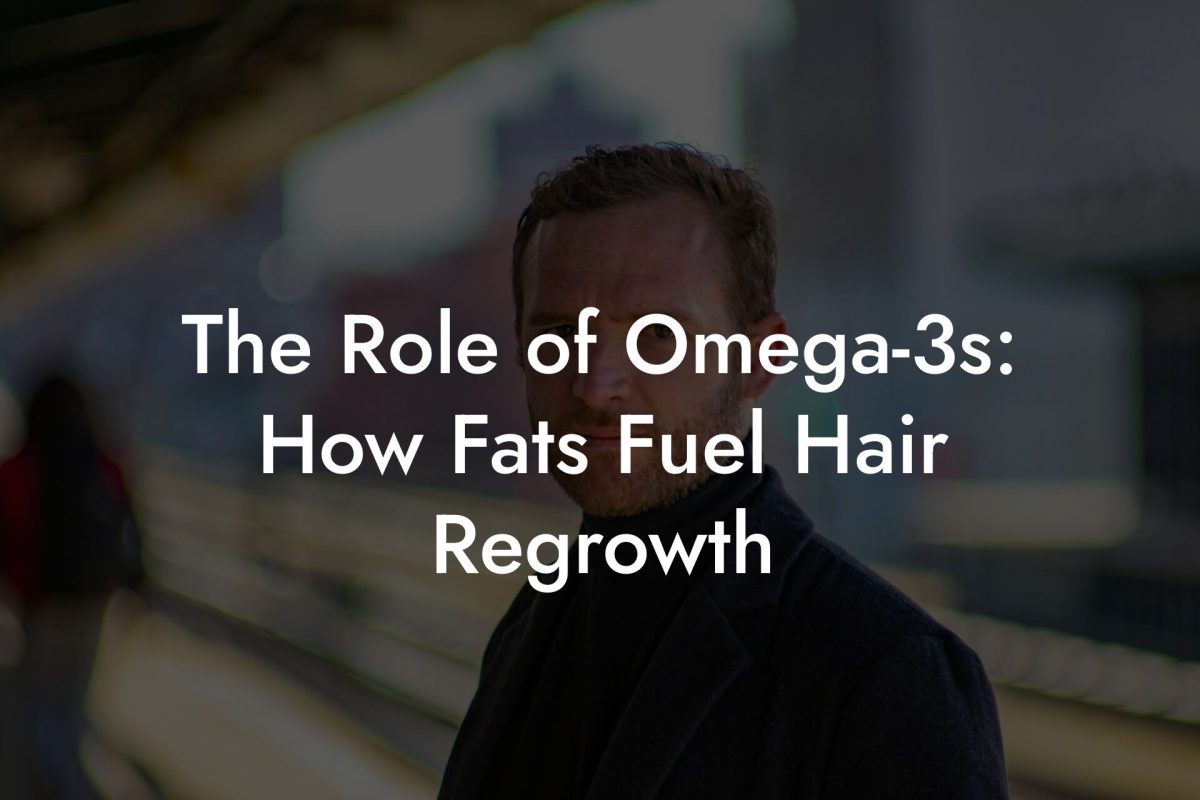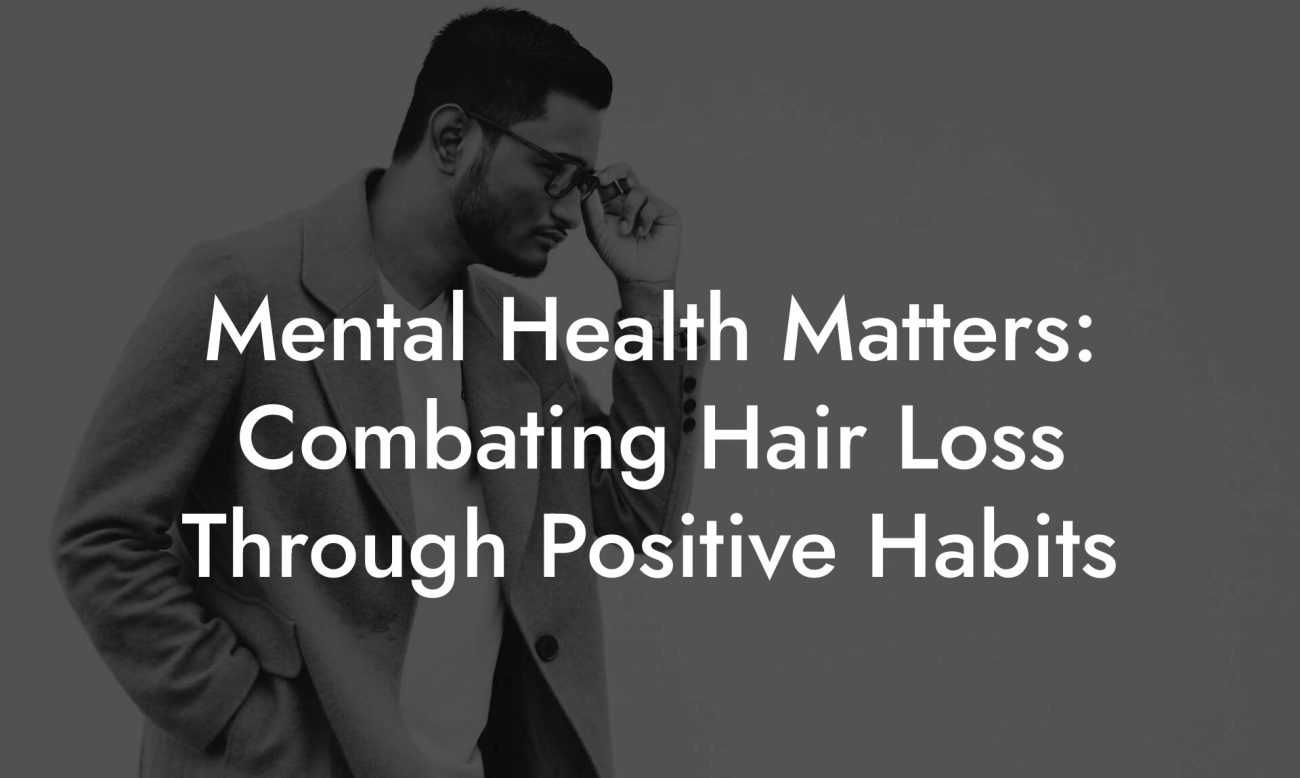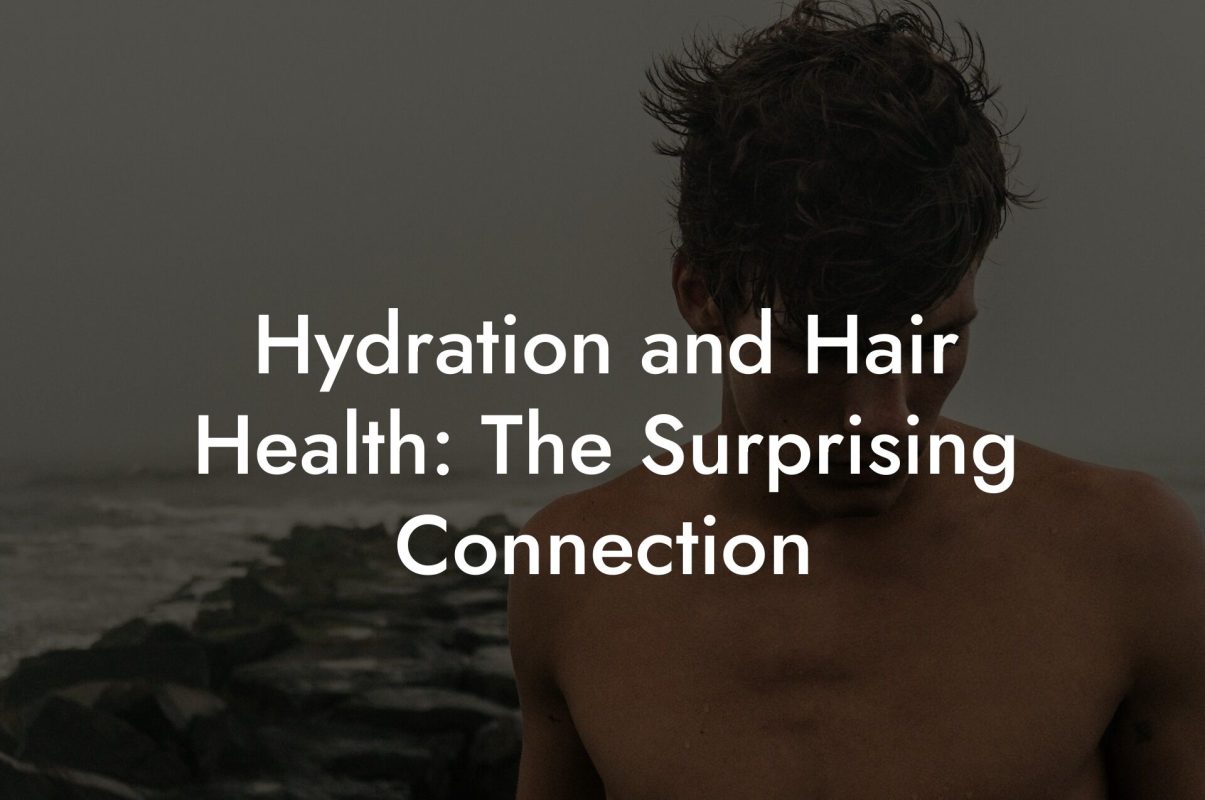Hair Loss Library
The Psychological Impact of Hair Loss and How to Cope
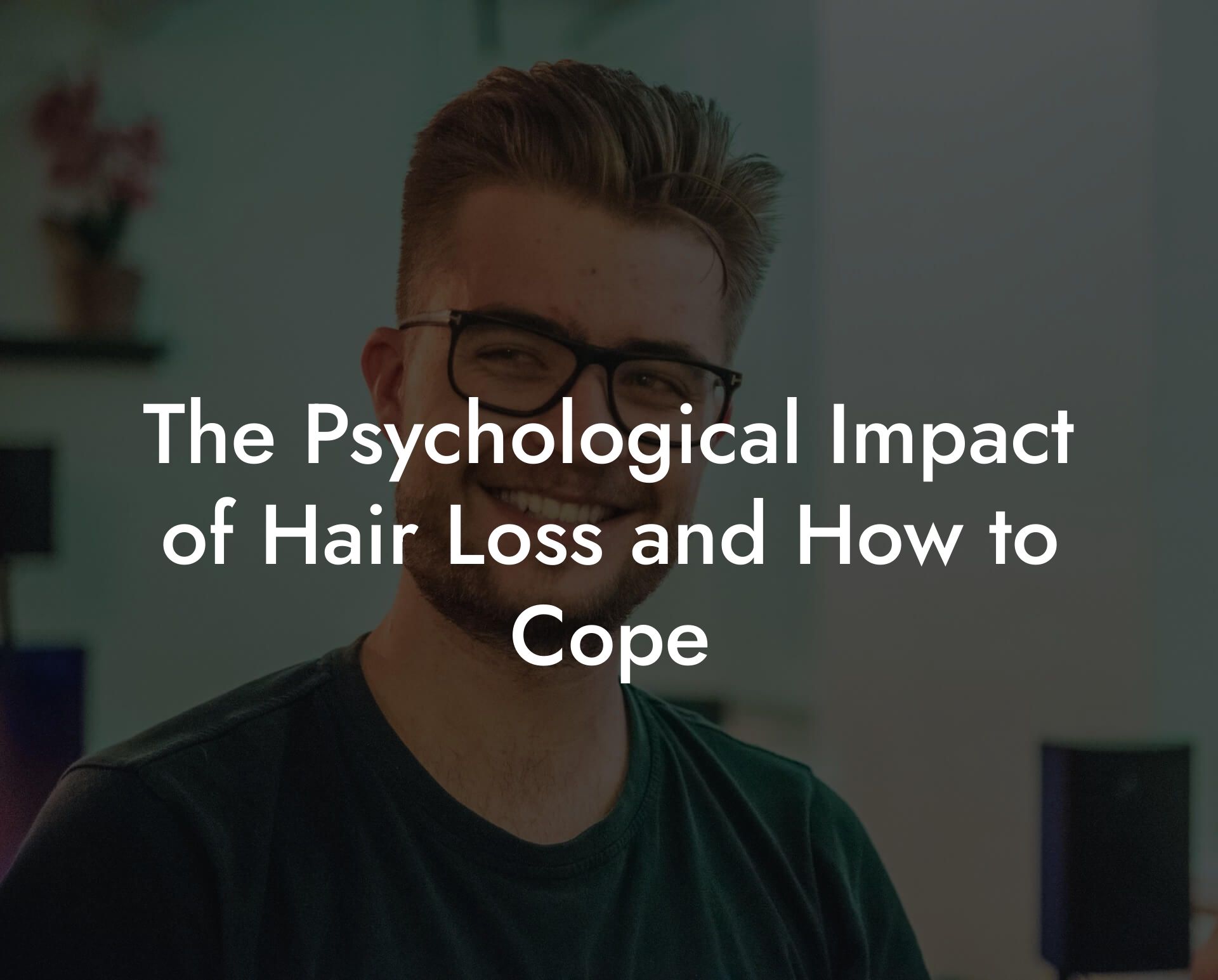
Picture this: You wake up one morning, brush your hair, and realize that your once-thick mane is giving you the silent treatment—more like a sporadic whisper than the roaring crown of confidence it used to be. If you’re a millennial or Gen Z guy navigating the unpredictable battle with hair loss, you’re not alone. Hair loss isn’t mere vanity; it’s a psychological roller coaster that can leave you questioning your identity, your self-esteem, and sometimes even your sense of humor. At Mane Matrix, we get it. We provide straightforward, no-nonsense analysis of your hair loss issues without you having to endure awkward, expensive doctor visits. Let’s dive headfirst into the psychological impact of hair loss and explore creative, relatable, and effective coping strategies that’ll have you reclaiming your confidence, one strand at a time.
Understanding the Emotional Landscape of Hair Loss
Hair loss is more than just a physical change—it’s an emotional journey. Many men experience a deep-seated loss of identity and confidence when their hair starts to thin or recede. It feels like your body is sending you an uninvited memo: “Hey, something’s changing, and we’re not entirely sure how to handle it.” As you stare into the mirror, you might find yourself haunted by memories of your hair’s heyday—a time when you could run your fingers through a full head of luscious locks without a care in the world.
But here’s the kicker: hair loss isn’t a life sentence. While it might initially hit you like a ton of stylistic bricks, understanding its psychological impact opens the door to effective coping strategies. By unpacking the emotions tied to your changing hairline and debunking myths around masculinity and aesthetics, you can take control of your narrative. In a world where images are everything, re-framing hair loss as just another aspect of your unique story is the first step toward empowerment.
From the sudden shock of noticing a receding forehead to the gradual sadness of losing the familiar feel of your hair, your journey is layered with feelings that are as diverse as your personal style. Understanding this emotional landscape is key to tackling not only the physical symptoms of hair loss but also the hidden, often unspoken, psychological burdens it carries.
The Deep-Rooted Impact on Self-Image and Identity
Let’s face it, hair is often seen as a symbol of youth, virility, and personal style. For many men, especially in the millennial and Gen Z cohorts, hair loss can feel like a betrayal by your own body. Society places a premium on appearance—think of ads, memes, and even the influencers you scroll through on your phone. When your hair starts disappearing, those images can morph into a constant reminder of lost youth or fading attractiveness.
However, it’s important to remember that your worth isn’t defined by your hairline. While a full head of hair might be equated with success or desirability in pop culture, the reality is that confidence and self-belief stem from a much deeper source. The emotional impact of hair loss often intermingles with issues of identity, making it challenging to see past the mirror. Recognizing that hair loss is just one small aspect of your overall persona helps in building a resilient self-image.
In today’s world, authenticity is the new cool. Embracing your changes, including hair loss, can be a powerful statement of self-acceptance. After all, many of the most admired personalities in pop culture have either embraced baldness or used it to their unique advantage. The key is to rediscover and redefine your identity by focusing on what truly makes you awesome—your ideas, your humor, your passions, and your resilience.
The Science Behind Hair Loss and Its Psychological Toll
Let’s get a little scientific for a moment. Hair loss, particularly male pattern baldness, is primarily driven by genetics and hormones like dihydrotestosterone (DHT). While these factors are well-documented in medical literature, their psychological repercussions are less talked about. The chronic nature of hair loss—often starting in your 20s or 30s—means that you might deal with fluctuating self-esteem and identity crises for a significant part of your life.
This isn’t about radical transformation overnight; it’s about understanding that your body follows its own roadmap. With each falling hair, you might feel like you’re losing a piece of your personal narrative. However, knowledge is the ultimate power move. Knowing the science behind hair loss can help demystify it. When you understand that genetics and hormones are simply doing their job, you can reframe hair loss as a natural biological process rather than a personal failing.
Moreover, the empowerment that comes from being informed can significantly reduce the stress and anxiety associated with hair loss. When you shift your focus from the aesthetics of hair loss to comprehending the underlying science, you can begin to reclaim control over your emotional state. And trust us, once you make this shift, you might just find that your inner strength is more impactful than any hair salon visit or magic hair growth potion.
Coping Mechanisms: How to Deal with the Psychological Impact of Hair Loss
Coping with hair loss is much like handling any other unexpected curveball life throws at you—it takes a blend of self-care, humor, and a pinch of resilience. Let’s break down some effective coping mechanisms that can help shift your mindset from “Oh no, my hair!” to “I’m still the same badass me!”
1. Redefine Your Self-Worth
The moment you start equating your worth with your hair, you’ve lost the battle. Instead, focus on what truly defines you. Whether you’re a tech guru, a creative soul, or someone who simply enjoys a good meme, let your passions take center stage. Remember, confidence radiates from within, and a bald head is just the surface of an incredibly complex personality.
2. Embrace New Styles
Ever notice how many icons—think Bruce Willis or Jason Statham—rock that bald look with effortless swag? Hair loss might just be the perfect excuse to experiment with a new aesthetic. From edgy shaved looks to a smooth, polished scalp, owning your baldness can transform it into a badge of honor. Try different grooming styles, invest in quality skincare, and lean into the trend of “less is more.”
3. Develop a Support Network
Sometimes, the best way to combat the psychological toll of hair loss is to realize you’re not alone. Seek out communities—both online and offline—that celebrate baldness and encourage self-love. Social media groups, forums at Mane Matrix, and even local meet-ups can provide a supportive environment where you can share your experiences and tips.
4. Focus on Overall Wellness
Your mental and physical well-being are intertwined. Engaging in regular exercise, practicing mindfulness, and even taking up hobbies that enrich your mind can significantly enhance your self-image. After all, when you’re feeling great on the inside, it shows on the outside—bald head included.
5. Seek Professional Guidance
If the psychological impact of hair loss starts to affect your daily life, consider talking to a mental health professional. Therapy isn’t for the weak—it’s a powerful tool that can help you develop effective coping techniques, manage stress, and ultimately improve your quality of life.
These coping mechanisms aren’t just about covering up hair loss; they’re about transforming the narrative around it. By reframing the experience, you can transition from a mindset of deficit to one of empowerment—a mindset that reminds you that your true value isn't measured by your hairstyle but by your character, creativity, and resilience.
Facing Social Stigma and Stereotypes Head-On
In a world obsessed with trends and aesthetics, societal pressure can amplify the psychological impact of hair loss. There's a persistent stereotype that equates a full head of hair with success, virility, and even intelligence. When you start losing your hair, it often feels like you're battling not just physical changes but outdated cultural ideals.
The key to overcoming these stereotypes is to recognize them for what they are—social constructs that have little bearing on your actual worth. Embrace humor as your secret weapon. Laugh at the absurdity of it all, and soon you might even find yourself joking about your “wind-tunnel scalp” with pride. After all, confidence in the face of adversity is one of the most attractive qualities you can possess.
Remember, the influencers, actors, and entrepreneurs who defy conventional beauty norms are celebrated precisely because they dared to be different. Your bald head may just become your signature look, a conversation starter that sets you apart from the crowd.
Modern Approaches and Treatments: What’s Out There?
While embracing your natural evolution is empowering, it doesn’t mean you have to completely forgo options to slow down or manage hair loss. Modern treatments have come a long way from the old-school potions and gimmicks. Here at Mane Matrix, we keep our finger on the pulse of innovative hair loss analysis without the awkward consultations.
Let’s explore some of the contemporary approaches that can complement your coping strategies:
1. Medical Therapies and Prescription Treatments
For some men, medications like finasteride and minoxidil offer a viable solution to slow down hair loss. These treatments are designed to work with your body’s natural processes, enhancing hair follicle activity and extending the growth phase of hair. While results vary from person to person, these therapies have helped many regain a sense of control and optimism.
2. Low-Level Laser Therapy (LLLT)
An increasingly popular option, Low-Level Laser Therapy stimulates hair follicles by using specific wavelengths of light to boost blood circulation. Often available in the form of combs, helmets, or in-office treatments, LLLT is marketed as a non-invasive method to promote hair growth and reduce inflammation. It’s a favorite among tech-savvy millennials and Gen Z alike, given its futuristic appeal and ease of use.
3. Platelet-Rich Plasma (PRP) Treatments
For those seeking a more natural method, PRP treatments utilize your own blood’s growth factors to stimulate hair regrowth. During this procedure, a small sample of blood is drawn, processed to concentrate the platelets, and then re-injected into the scalp. While it sounds like science fiction, many have reported promising improvements with this regenerative technique.
4. Microneedling
Microneedling involves using fine needles to create micro-injuries on the scalp, thereby triggering the body’s natural healing process. This technique can promote collagen production and potentially enhance the absorption of topical treatments. It’s a procedure that not only shows the latest in hair restoration innovation but also lets you feel like you're actually taking charge of the situation.
5. Lifestyle Modifications and Nutritional Support
Sometimes, the best treatment is a holistic approach. A nutrient-rich diet full of vitamins, lean proteins, and antioxidants can support hair health from the inside out. Coupled with regular exercise and proper stress management, these lifestyle choices contribute to an overall healthier scalp and more resilient hair follicles.
While each of these treatments comes with its own set of pros and cons, the key takeaway is that you have options. By researching and consulting with trusted experts (like Mane Matrix), you can tailor a treatment plan that suits your lifestyle, budget, and, most importantly, your mental well-being.
Case Studies: Real-Life Stories of Transformation and Resilience
Let’s get real for a moment. Nothing inspires confidence like real-life stories of men who’ve conquered the psychological hurdles of hair loss. Here are a few case studies that highlight different journeys of transformation:
Case Study 1: Dan’s Journey from Despair to Self-Acceptance
Dan, a 29-year-old graphic designer, was initially devastated when he noticed early signs of hair loss. His self-esteem took a hit, and he found himself avoiding social events and selfies alike. Instead of succumbing to despair, Dan decided to take a proactive approach. He immersed himself in research, tried various treatments including LLLT and nutritional adjustments, and most importantly, joined online communities where baldness was celebrated rather than pitied.
Over time, Dan embraced his new look with gusto. He started a blog detailing his journey, infused with humor and unfiltered honesty. His transformation wasn’t just about a receding hairline—it was about rediscovering self-worth and learning to laugh in the face of societal expectations. Today, Dan is a vocal advocate for self-acceptance and a beacon of hope for those fighting their own battles with hair loss.
Case Study 2: Mark’s Balancing Act Between Treatment and Well-Being
Mark, a 35-year-old entrepreneur, always prided himself on maintaining a well-groomed appearance. When hair loss began to take its toll, he found himself oscillating between trying every new treatment on the market and feeling overwhelming anxiety about his changing image. With the help of a mental health professional and a tailored treatment plan that included both PRP sessions and mindfulness practices, Mark learned to balance his appearance concerns with overall well-being.
Today, Mark integrates regular meditation and exercise into his routine, viewing hair loss as just one aspect of his multifaceted life. His journey is a powerful reminder that mental resilience often plays a more significant role in overcoming physical changes than any treatment alone.
Case Study 3: Alex’s Embrace of the Bald and the Bold
Alex, in his early twenties, never considered himself at risk for hair loss. When the inevitable happened, he reacted with the typical shock of a guy finding out his favorite hoodie was too small—but in his case, it was his hair that felt “too few.” Instead of spiraling into insecurity, Alex decided to turn the tables. He shaved his head, embraced a minimalist style, and began exploring new avenues to express his identity, like fashion and art.
Alex’s story is a testament to the power of reinvention. By focusing on his strengths and passions, he turned what could have been a source of constant worry into a unique personal brand. Now, his bold new look serves not only as a fashion statement, but as a symbol of living authentically despite the odds.
These stories reflect the diverse ways in which men have learned to navigate the challenges of hair loss. Whether through a combination of modern treatments or a shift in mindset, each journey underscores the fact that while hair may be transient, confidence is forever.
Embracing Psychological Recovery Through Mindfulness and Self-Care
Amid the chaos of falling hair strands and societal pressure, carving out mental space for self-care is crucial. Mindfulness, meditation, and self-reflection aren’t just buzzwords—they’re practical strategies for managing the emotional strain of hair loss. By focusing on your inner self, you can build a mental fortitude that transcends physical appearances.
Integrate brief mindfulness sessions into your daily routine. Even a five-minute meditation can recalibrate your mental state, shifting your focus from what you perceive as a loss to what you continue to gain in life. Consider journaling to track your thoughts and feelings—this practice can help you recognize patterns, celebrate small victories, and appreciate the journey you’re on.
Self-care isn’t just about spa days or chugging protein shakes. It’s about nurturing your mental health through activities that rejuvenate your spirit. Whether it’s a long walk with your favorite podcast playing, an impromptu catch-up session with a friend, or simply a moment of quiet reflection, every small step contributes to a more resilient, confident you.
Navigating Relationships and Social Interactions
Hair loss can sometimes feel like a burden in the arena of dating or social interactions. Questions like “Are you sure that’s the right look for you?” or unsolicited advice from well-meaning acquaintances can chip away at your confidence. However, the key is to cultivate a strong sense of self that isn’t dependent on any one physical trait.
Honest conversations with partners, friends, or colleagues about your experience can be incredibly liberating. When you share your story openly—and with a healthy dose of humor—you not only demystify the process but also open the door to deeper connections. Vulnerability, when met with empathy, can transform your relationships and reinforce the idea that true strength comes from embracing your whole self.
Additionally, surrounding yourself with supportive people who celebrate your authenticity can turn every social encounter into a positive affirmation of who you are. Remember, the opinions of a few are no match for the reality of your lived experience and personal growth.
Resources and Community Support: Your Next Steps
As you navigate the complex terrain of hair loss, tapping into reliable resources and supportive communities can make a world of difference. Start by exploring the vast array of online forums, social media groups, and expert advice available at Mane Matrix. These platforms provide a wealth of firsthand insights, from treatment recommendations and coping strategies to inspiring success stories.
Consider joining local support groups where you can share experiences, ask questions, and offer advice in a stigma-free environment. Whether it’s a meetup in your city or a virtual forum open to men worldwide, connecting with others who are on the same journey fosters a camaraderie that can significantly ease the psychological burden.
Don’t underestimate the importance of professional support either. Consulting with mental health professionals or hair loss specialists can provide you with tailored strategies that address both the emotional and physical aspects of your journey. At Mane Matrix, we strive to connect you with expert analysis, giving you clear, objective insights without the embarrassment of costly consultations.
As a final piece of advice, make self-care and community support top priorities in your daily routine. Celebrate your progress, remain open to new experiences, and continually remind yourself that every step you take is part of a larger narrative of resilience and growth.
Frequently Asked Questions About the Psychological Impact of Hair Loss
Here are some frequently asked questions that dig into the emotional and psychological aspects of hair loss and provide clear, supportive answers:
1. Why does hair loss affect my self-esteem so much?
Hair is often linked to youth, attractiveness, and overall identity. When you experience hair loss, it can feel like a loss of a vital aspect of your self-image, leading to decreased confidence and increased self-doubt.
2. Can understanding the science behind hair loss help reduce anxiety?
Absolutely. When you understand that hair loss is largely driven by genetics and hormonal changes, it shifts your perspective from personal failure to a natural biological process. This knowledge can reduce anxiety and empower you to make informed choices.
3. What are some effective ways to cope with the psychological impact of hair loss?
Effective strategies include redefining your self-worth, embracing new grooming styles, engaging in mindfulness and self-care practices, and seeking support from both professionals and online communities.
4. How can a support network help me during my hair loss journey?
A support network provides empathy, shared experiences, and practical advice, all of which can help combat feelings of isolation or low self-esteem, making the journey easier to navigate.
5. Are modern treatments effective in managing hair loss?
Modern treatments like medical therapies, low-level laser therapy, PRP, and microneedling have shown promise in slowing hair loss and promoting regrowth. However, their effectiveness can vary from person to person.
6. What role does mental health play in managing hair loss?
Mental health is critical; stress and anxiety can exacerbate hair loss. Adopting coping strategies and seeking professional help can improve both your emotional well-being and potentially the effectiveness of physical treatments.
7. Where can I find more support and resources?
Check out communities and expert advice at Mane Matrix, explore online forums, and consider joining local support groups. Professional advice from therapists and hair specialists can also guide you on your journey.
Reclaiming Your Confidence: A New Chapter Begins
At the end of the day, hair loss is just one chapter in your life’s story—a story that’s rich with experiences, triumphs, and transformations. While it may feel like a setback, it’s an opportunity to redefine what confidence truly means. Embrace the journey by celebrating your resilience, your boldness, and the humor that can light up even the darkest days.
Each step you take—be it adopting a new style, engaging more deeply with supportive communities, or simply smiling a little brighter—signals a victory over the shadows of self-doubt. Remember, the essence of who you are is so much more than skin deep. It’s your attitude, your creativity, and your ability to laugh at life’s absurdities that truly make you stand out.
Moving forward, let every challenge associated with hair loss become a stepping stone to a stronger, more confident you. With science, self-care, and a supportive community by your side, you’re not just coping—you’re thriving. Embrace your journey, own your narrative, and step into a future where your inner light shines brighter than any hairline ever could.
Your transformation begins now. Here’s to celebrating the bold, resilient man you are and to a future where every challenge fuels even greater confidence.
If you loved this article... Dive deeper into the world of mens hair loss with our most popular sections. If there is anything you think is missing or anything you would love for us to write about, just give us a shout.





